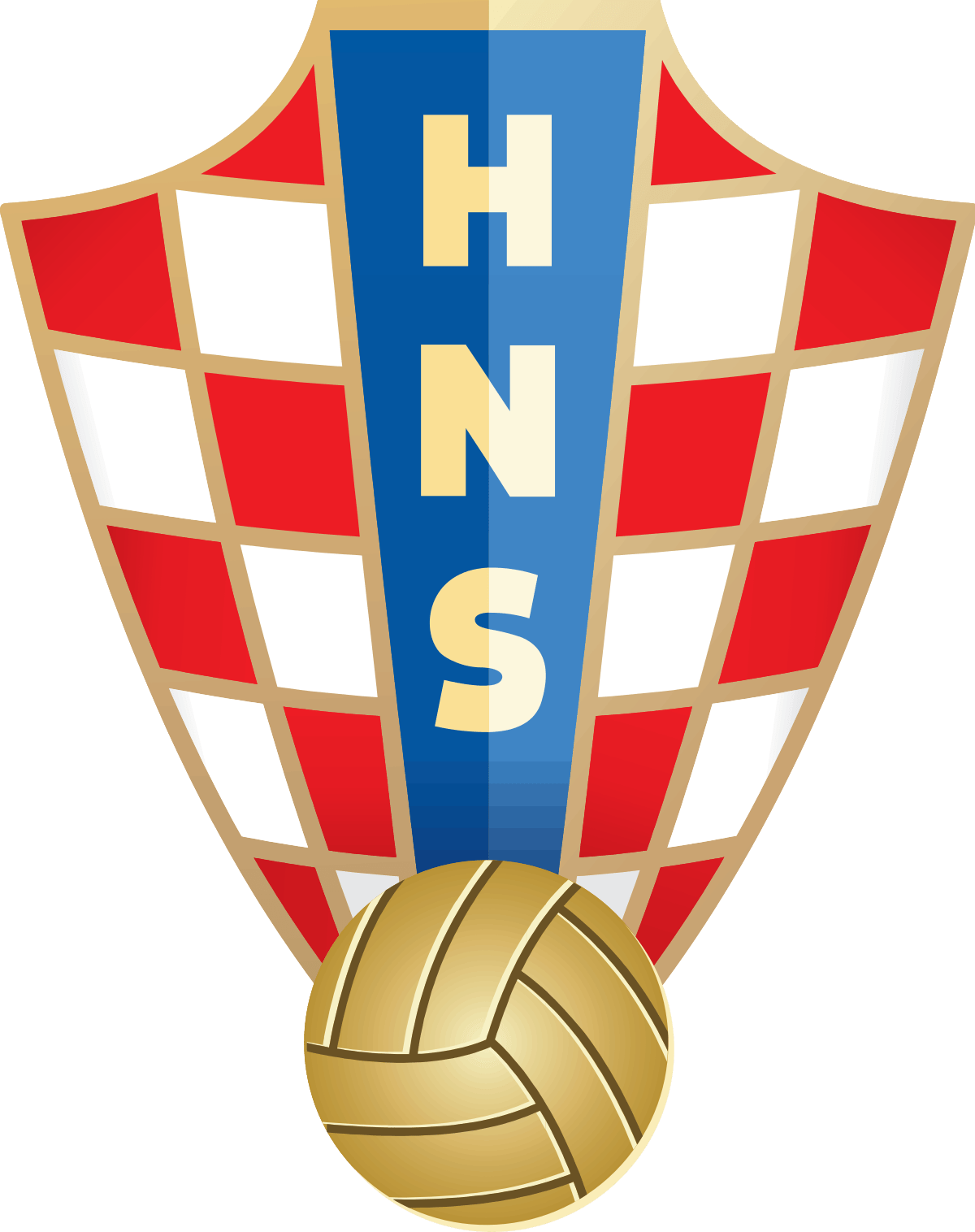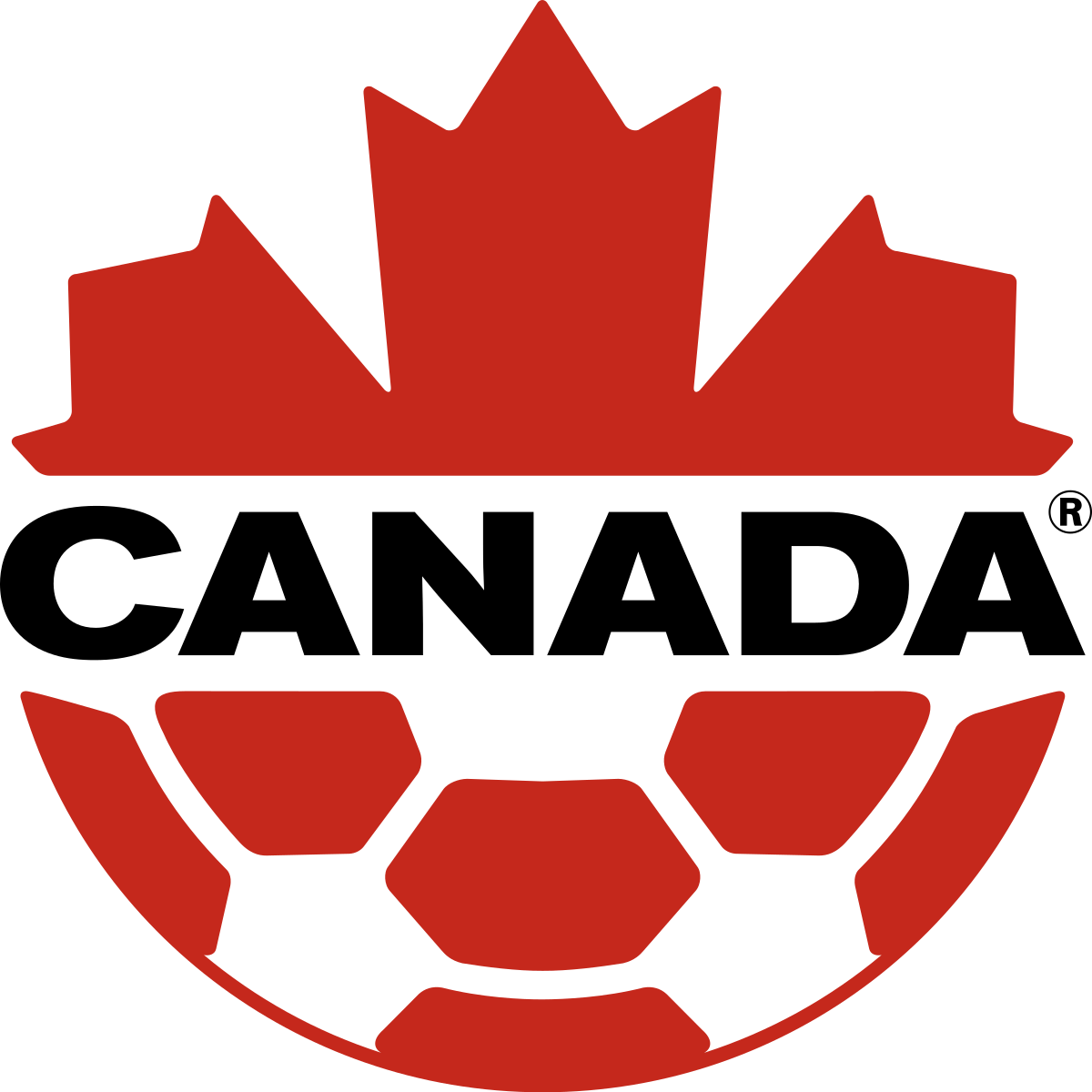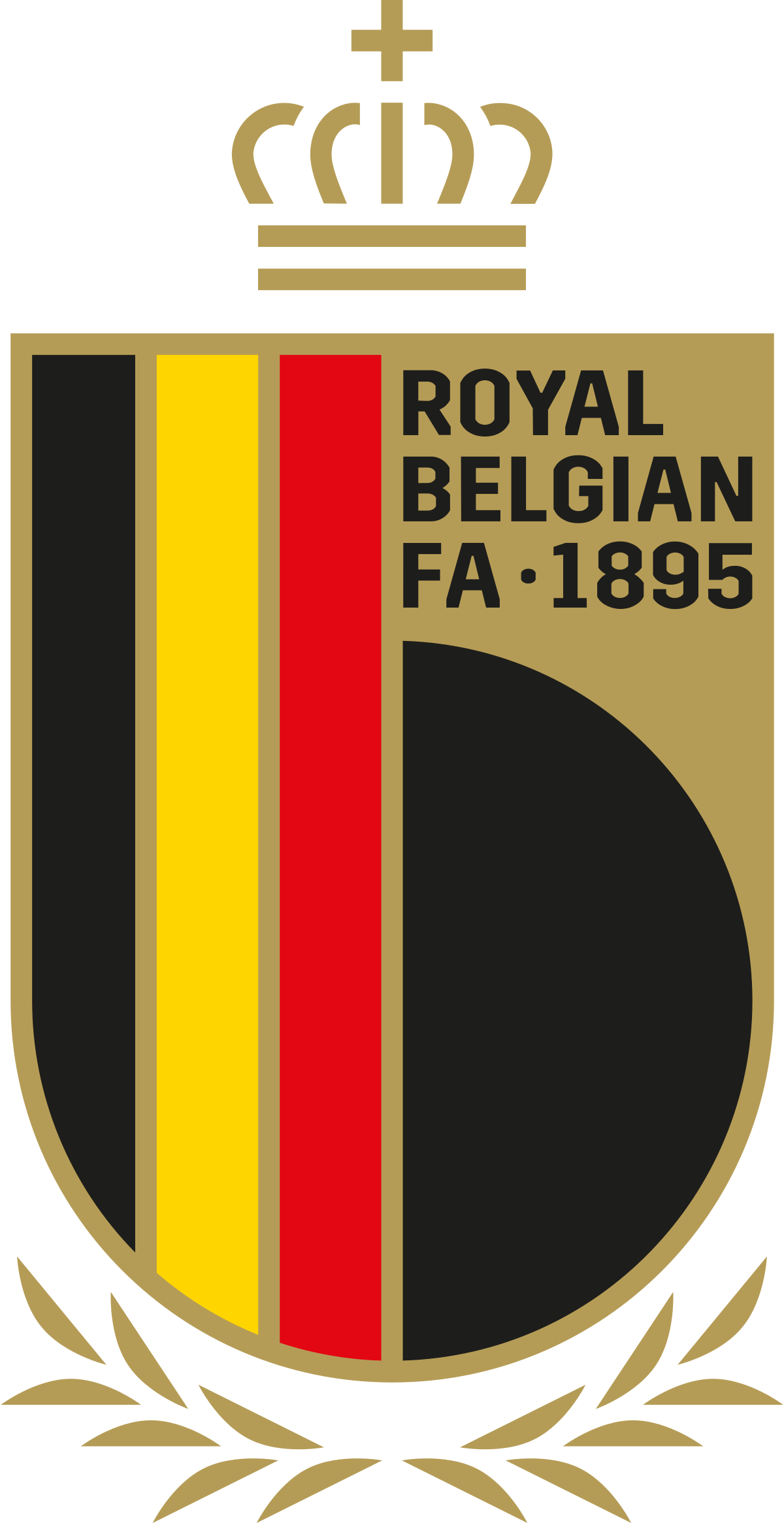
Croatia (Vatreni/The Blazers)
Runners Up: 1 (2018)
Semi-Finalists: 1 (1998)
Group Stage: 3 (2002, 2006, 2014)
Current FIFA Ranking: 12
Luka Modrić
Read More
Marcelo Brozović
Read More
Ivan Perišić
Read More
Zlatko Dalić
Read More
Group F Schedule
Game 1 – Wednesday 23rd November 2022

Morocco
13:00 Qatar Time/10:00 GMT
Al Bayt Stadium, Al Khor
Game 2 – Sunday 27th November 2022

Canada
19:00 Qatar Time/16:00 GMT
Khalifa International Stadium, Al Rayyan
Game 3 – Thursday 1st December 2022

Belgium
18:00 Qatar Time/15:00 GMT
Ahmad bin Ali Stadium, Al Rayyan
Notable Honours
Croatia have never won a major trophy but have achieved more than expected in their relatively brief time as a national team. Their best-ever World Cup performance is runners-up in the previous edition. They also attained third place in 1998.
Independence and Beginnings
Croatia had previously been part of the Kingdom of Yugoslavia (later just Yugoslavia) dating back to December 1918, before the first World Cup in 1930. However, they declared independence from the Yugoslavs on 25 June 1991. They successfully fought a bloody war for independence against the Serbs in the subsequent four years. The national team was readmitted to FIFA on 3 July 1992 and subsequently to UEFA a year later. It was, however, too late for them to enter qualification for USA ‘94. As a new nation, they were ranked 125th in the FIFA World Rankings, and they rose rapidly, qualifying for the first tournament they entered – Euro 96 – winning the Best Mover of the Year Award as they climbed to 62nd. In England, an exciting team containing now legendary Croatian players such as Robert Jarni, Slaven Bilić, Dario Šimić, Alen Bokšić, Davor Šuker, Zvonimir Boban, and the enigmatic Robert Prosinečki (some of whom had won the 1987 FIFA World Youth Championship with the Yugoslavia under-20 team) hugely impressed in their first tournament under the stewardship of coach Miroslav Blažević. The highlight of the group stage had been a great chip by Šuker to beat Peter Schmeichel in a 3-0 victory over Denmark at Hillsborough. It was all the more outrageous as Schmeichel was arguably the best goalkeeper in the world then, and Denmark were the reigning champions. In the quarter-final against Germany, Croatia gave an excellent account of themselves, with Šuker equalising after the Germans had taken a 1-0 lead. However, a Matthias Sammer goal on the hour sent the Croatians home. Still, it had been a fantastic tournament for them, and they looked to World Cup qualifying with optimism.
The Golden Generation of Euro ’96 and France ‘98
Indeed, Croatia qualified for the tournament in France with a 3-1 aggregate play-off victory over Ukraine. The World Cup proved to be even better for Croatia than the Euros had been. They finished second to Argentina in their group, thanks to victories over Jamaica and Japan. A Šuker penalty on the stroke of half-time dispatched Romania in the round of 16. What transpired in the quarter-finals is the stuff of Croatian legend. They decimated Germany 3-0 in Lyon, thanks to goals by Jarni, Goran Vlaovic, and Šuker again. Shock waves reverberated worldwide as people knew Croatia were good, but not this good. To further compound the misery for the Germans, it was legendary midfielder Lothar Matthaus’s 25th and last World Cup match.
The victory over the Germans set up a meeting in Paris with hosts France, who had underwhelmed to this point. Šuker gave Croatia the lead at the start of the second half. However, right-back Lilian Thuram equalised instantly and scored the winner in the 70th minute. It was bittersweet for Croatia. They had come close to the final in their first World Cup, only to be denied by an admittedly very talented and legendary fullback. They did, however, claim third place by beating the Netherlands in the third-place match as some consolation. Their bronze medal positioning remains the best debut performance by any nation since Portugal in 1966. Šuker also won the Golden Boot with six goals. Quite astonishingly, they had climbed to third in the world rankings.
Period of Decline
Two years later, the Croatians were brought back down to earth, failing to qualify for Euro 2000. After Blažević’s resignation, Mirko Jozic took the reins, and they qualified for South Korea/Japan in 2002. They won one game (though it was against Italy) and were eliminated in the group stage, with Jozic replaced by Otto Baric. The golden generation had aged and was phased out as Croatia qualified for Euro 2004. Picking up draws against Switzerland and France, and losing to England, saw the Croatians eliminated in the group stage in Portugal. After Zlatko Kranjcar succeeded Baric, they qualified for Germany 2006 via an undefeated campaign. Again, they went out in the group.
Signs of Resurgence
Former player Slaven Bilić then took charge. Croatia qualified for Euro 2008, famously beating England 3-2 at Wembley to prevent England’s qualification. As one of the fancied teams at the Euros, they won all three group games, but in the quarter-final versus Turkey, they scored in the 119th minute and then conceded in the 120th as they tried to see the match out. They subsequently lost on penalties. They had only conceded two goals and not lost a game in standard time, highlighting the cruel nature of tournament football.
A failure to qualify for South Africa 2010 was followed by qualification for Euro 2012. Bilić had decided to leave his post after Euro 2012, and Croatia were unfortunately eliminated in the group stage with four points, finishing behind Spain and Italy. Then, under Niko Kovac, Croatia picked up three points from nine in Brazil in 2014, losing to the hosts in the opening match, beating Cameroon, and losing to Mexico. Croatia had failed to reach the round of 16 in their third straight World Cup appearance. They then qualified for Euro 2016 and, after beating Spain in the final group to top their section, were seen as a favourite for the tournament. However, they proceeded to lose a low-quality game to Portugal in the round of 16, after which Darijo Srna ended his illustrious international career.
Second Golden Generation and the World Cup Final
Croatia had been producing top-quality players again which had been labelled a second golden generation. In heading to Russia in 2018, the team included players such as Danijel Subasic, Dejan Lovren, Ivan Perišić, Mario Mandžukić, Marcelo Brozović, Mateo Kovacic and, of course, the irrepressible Luka Modrić. Modrić had, at that point, starred in four Real Madrid UEFA Champions League triumphs. Coached by Zlatko Dalić, Croatia won all three group games, including a 3-0 destruction of Argentina, and the praise flowed. Hard-fought penalty shootout victories over Denmark and hosts Russia led to a showdown with England in Moscow for a place in the final. The English media was overconfident, especially when England took the lead. However, Perišić equalised, and Mandžukić sent Croatia to the final in extra time, to joyous scenes. In a controversial final, Croatia lost 4-2 to France. However, they had become the second smallest country after Uruguay to reach a World Cup Final. Modrić won the Golden Ball for player of the tournament, cementing his legacy as one of the greatest midfielders ever, and the squad were welcomed home by proud fans.
A Repeat on the Cards?
Croatia were eliminated by Spain in the round of 16 at Euro 2020, despite producing a valiant comeback to force extra time on ‘Magic Monday’. Fresh blood has been introduced, but Modrić and company are still present, with Mandžukić appointed as the assistant coach. They travel to Qatar, as ever, determined to do their country proud. They are not expected to repeat the heroics of four years ago, but you never know in football.
Road to Qualification
UEFA Group H: 1st
Record: Played:10 W:7 D:2 L:1 F:21 A:4 GD:+17 Points:23
Date of Qualification: 14th November 2021
Qualification was not easy for the Croatians, battling it out with Russia, who were retrospectively banned in 2022 due to their invasion of Ukraine. Drawn in a group also containing Slovakia, Slovenia, Cyprus and Malta, Croatia opened their campaign with a somewhat surprising 1-0 defeat in Slovenia. They then expectedly won their next two home games against Cyprus and Malta. The media criticised their performances, but they kept two clean sheets. After matchday three, Croatia and Russia were both on six points. On 1 September 2021, Croatia travelled to the Luzhniki Stadium in Moscow, the site of their 4-2 defeat to France in the World Cup Final three years earlier. They ground out a hard-fought point. Three days later, Croatia won 1-0 in Slovakia thanks to a Marcelo Brozović finish, while Russia won in Cyprus. Then, both sides attained six points from the following two matchdays, neither conceding a goal, so they were on an identical sixteen points. On matchday 8 in Osijek, however, a 71st-minute Modrić equaliser against Slovakia left Croatia two points behind Russia, who won in Slovenia. The pressure was now on.
In the penultimate matchday, both teams won easily by six clear goals. Therefore, the last matchday came down to a shootout in Split for qualification. The Russians needed only a draw, but in a tight game, a late Fyodor Kudryashov own goal sealed a Croatian victory. They had qualified by one point. It had been a hard-fought contest over the ten matchdays, with only these two teams ever in contention of topping the group. However, Croatia had qualified for their sixth World Cup from a possible seven, missing out only in 2010. They averaged 2.1 goals per game but only conceded four and kept seven clean sheets. Their qualification was therefore built on being organised and defensively resolute. Their top scorers were Modrić, Mario Pasalic and Ivan Perišić, with three apiece. Croatia would likely still have qualified if the now-banned Russians had won the group. However, Croatia will take great confidence from the fact that they emerged victorious over a strong opponent. Freshening up the squad with some younger players post-Euro 2020 has paid dividends.
Meet the Coach: Zlatko Dalić (age 55)
Dalić was a journeyman midfielder who had three minor spells with Hajduk Split and then retired in 2000. Between 2004 and 2017, he had spells managing in his homeland, Albania, Saudi Arabia, and the United Arab Emirates. His managerial career might have been as modest as his playing one. However, he was appointed Croatia manager in 2017, achieving much of what has been detailed above. He has at times played a pragmatic, even dull, style of football, but Croatia have impressed at other times. He lost the dressing room and respect of his players after Euro 2020. However, he turned things around with the upturn in form in qualifying after the Euros and with qualification for the 2023 Nations League Finals. He has proved he can pass the group stage with a World Cup Final and Euro 2016 round of 16 place on his CV. Much of the golden generation is well into their thirties, but their experience will be valuable, allied with the exuberance of the younger players who have been introduced. Being grouped with Belgium, Morocco and Canada will give Dalić confidence that he can answer any questions posed to him and qualify for the knockout stage again.
Possible Starting XI and Style of Play

Croatia are more than capable of playing with style and panache, boasting many technically proficient players, particularly in midfield. However, they can also be dogged and grind things out when they have to, as evidenced by the comeback against England four years ago. In goal, legendary number 1 Danijel Subasic retired after the last World Cup, so Dominik Livakovic and Ivica Ivusic will battle for the spot. The former should win out. The fullbacks offer width in attack, with Borna Sosa and Josip Juranovic being good at driving forward. Borna Barisic is also an option at left-back, providing excellent crossing ability. Domagoj Vida and talented youngster Josko Gvardiol might form a good centre-back partnership, with the latter also able to play left-back in place of Barisic. Dejan Lovren and Josip Sutalo are further options. The midfield is as strong as ever, with Luka Modric, Mateo Kovacic, and Marcelo Brozovic starring. Their collective industry and elegance will be essential. Nikola Vlasic is a talented reinforcement. In attack, Ivan Perisic should start on the left, with impressive wide playmaker Mario Pasalic coming in off the right. Vlasic could also play here. Andrej Kramaric or Mislav Orsic should start up front, but Ante Budimir is a more physical option from the bench. The team will hope to do well with their mix of battle-hardened experience and youthful zeal.
Squad List
Goalkeepers: Dominik Livakovic, Ivica Ivusic, Ivo Grbic
Defenders: Domagoj Vida, Dejan Lovren, Borna Barisic, Josip Juranovic, Josko Gvardiol, Borna Sosa, Josip Stanisic, Martin Erlic, Josip Sutalo
Midfielders: Luka Modric, Mateo Kovacic, Marcelo Brozovic, Mario Pasalic, Nikola Vlasic, Lovro Majer, Kristijan Jakic, Luka Sucic
Forwards: Ivan Perisic, Andrej Kramaric, Bruno Petkovic, Mislav Orsic, Ante Budimir, Marko Livaja
Key Players
Luka Modrić
Date of Birth: (09.09.1985, Zadar)
Current Club: Real Madrid
Caps/Goals: 154/23
Widely considered one of the greatest midfielders of all time, Modrić lists five UEFA Champions League titles with Real Madrid, the Golden Ball in Russia, and the 2018 Ballon d’Or among his most outstanding achievements. He was remodelled as more of a deep-lying playmaker or regista about twelve years ago to take advantage of his guile and intelligence. As a result, and alongside Toni Kroos and Casemiro, he was the lynchpin of Real Madrid’s fantastic midfield which helped win those Champions League trophies. Indeed, he is still performing well for the club now. Modrić is known for his nimbleness and balance, exceptional technique, supreme passing, good ball carrying, high pressing and defensive discipline. Due to his well-rounded skillset, he is generally regarded as the complete modern midfielder. He is still going strong at 37 and will be critical to Croatia’s campaign in Qatar.
Marcelo Brozović
Date of Birth: (16.11.1992, Zagreb)
Current Club: Inter Milan
Caps/Goals: 76/7
Long considered a talented player, Brozović won the Serie A title in 2020/2021 with Inter and is the league’s current midfielder of the year. He is a hard-tacking, dynamic and energetic midfielder who can cover much ground operating as a box-to-box midfielder. However, he is often deployed as a defensive midfielder or deep-lying playmaker. His technique, passing and versatility are also substantial assets. He is also not afraid of a battle, having accrued 109 yellow cards in his career. Considered a very talented midfielder, he was a regular fixture in the team which went to the final four years ago. If Croatia are to repeat their run of 2018, Brozović will have to link up well with Modrić and Kovacic. He has proved that he is capable of doing so.
Ivan Perišić
Date and Place of Birth: (02.02.1989, Split)
Current Club: Tottenham Hotspur
Caps/Goals: 115/32
Perišić is a versatile player who can operate both as a wing-back and wide-forward on either side. Indeed, he has been a crucial national team member since 2011, scoring in the 2018 World Cup Final. He first found mainstream club success with Borussia Dortmund, making 41 appearances in all competitions in 2011/2012 as the club won a domestic double. He then spent three years at Wolfsburg before becoming a mainstay in the Inter team from 2015 to 2022. At Inter, he totalled a highly impressive 254 appearances and 55 goals, later operating from wing-back under coach Antonio Conte. He joined Tottenham in the summer. While he is getting older, he remains a highly creative winger/wing-back, still possessing great shooting, crossing, power and industry.
